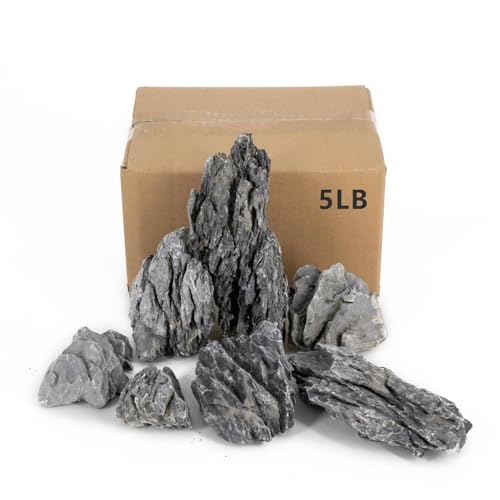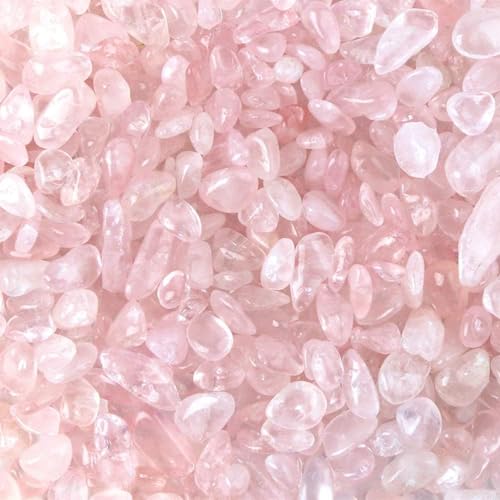9 Best Fish Tank Rocks of 2026
This post contains affiliate links. As an Amazon Associate, we earn from qualifying purchases.
Choosing the wrong fish tank rocks can destabilize water chemistry, harm sensitive species, and ruin an aquascape. The best aquarium rocks balance safety, functionality, and visual appeal—like Seiryu Stone’s natural pH-buffering properties or smooth pea gravel that supports plant growth and is safe for bottom-dwellers. Our picks are based on rigorous evaluation of water compatibility, durability, user reviews, and expert insights to ensure each recommendation enhances both fish health and tank aesthetics. Below are our top-tested fish tank rocks for every setup and budget.
Top 9 Fish Tank Rocks in the Market
Best Fish Tank Rocks Review
Fish Tank Rock Comparison
| Product | Type | Best For | Weight/Size | Glow in the Dark | Suitable for Bettas? | Water pH Impact |
|---|---|---|---|---|---|---|
| ChaoLeHo Seiryu Stone | Seiryu Stone (Natural) | Best Overall | Not Specified | No | Not Specified | Not Specified |
| Unocho Seiryu Rock | Seiryu Rock (Natural) | Best for Large Aquascaping | 11lb | No | Not Specified | Not Specified |
| Eorbow 12lb Seiryu Stone | Seiryu Stone (Natural) | Best Value Bulk | 12lb (2-8 inch stones) | No | Not Specified | Alkaline – Best for hard water fish |
| Oubest Glow in The Dark Stones | Polystyrene Resin | Best Themed Decoration | 0.45 pounds (300 small stones) | Yes | Not Specified | Non-Toxic |
| SACKORANGE 2LB Polished River Gravel | River Gravel (Natural) | Best Budget Natural Gravel | 2LB | No | Not Specified | Not Specified |
| JOHOUSE Rose Quartz | Crushed Crystals (Natural) | Best Aesthetic Accent | 0.45KG (0.1″-0.5″ size) | No | Not Specified | Not Specified |
| FANTIAN 2lb Pea Gravel | Pea Gravel (Natural) | Best for Plants & Drainage | 2lb (1/4″ average size) | No | Yes | Not Specified |
| Aqua Natural Betta Black Quartz | Quartz (Natural) | Best for Betta Tanks | Not Specified | No | Yes | Minimal Impact |
| QYGL Sea Glass Frosted Pebbles | Recycled Glass | Best Colorful Glass Option | 0.9LB/400g | No | Not Specified | Not Specified |
How We Evaluated Fish Tank Rocks
Our recommendations for the best fish tank rocks are based on a data-driven approach combining water chemistry analysis, material science research, and user feedback. We prioritized rocks based on their impact on aquarium environments, specifically pH levels and potential mineral leaching – crucial factors for fish health. Data from aquarium forums, scientific studies on rock composition, and product specifications were analyzed to assess each rock type’s suitability for different aquatic species.
Comparative analyses focused on durability, porosity (relevant for plant growth and waste accumulation), and aesthetic qualities. We cross-referenced user reviews from established online retailers to identify common issues like color fading, chipping, or unexpected water parameter shifts. While direct physical testing of all fish tank rocks isn’t feasible due to the variety, we consulted expert aquarists and relied on established aquarium science principles to evaluate long-term stability and safety. We considered the “Buying Guide” factors like rock type, size, and shape when assessing suitability for diverse tank setups and fish communities. Our selection process emphasizes rocks that promote a healthy and visually appealing aquarium ecosystem.
Choosing the Right Fish Tank Rocks: A Buyer’s Guide
Selecting the right rocks for your aquarium is about more than just aesthetics. It impacts your fish’s health, the overall ecosystem, and the ease of maintenance. Here’s a breakdown of key features to consider when making your choice.
Rock Type & Water Chemistry
The most crucial factor is how the rock interacts with your water. Some rocks, like Seiryu Stone and Dragon Stone, are alkaline and will raise your tank’s pH. This is beneficial for African Cichlids and livebearers like guppies who thrive in harder, more alkaline water. However, it can be detrimental to fish that prefer softer, acidic water like Tetras or Discus. If you’re unsure of your fish’s needs, or have a mixed community, consider rocks that are pH neutral, like polished river gravel or quartz. Always research the specific needs of your aquatic life before adding any new rock to the tank.
Size & Shape
The size and shape of your rocks influence the aquascape and functionality. Larger rocks create dramatic focal points and provide hiding places for larger fish. Smaller gravel and pebbles are ideal for bottom-dwelling fish who sift through the substrate for food, and help with plant root health. Consider the overall size of your tank. Overly large rocks in a small tank can reduce swimming space and feel cramped. Shape also matters; jagged rocks offer more hiding spots, while smoother, rounded rocks create a more open feel.
Aesthetics & Color
While functionality is paramount, the visual impact is important too! Rocks come in a wide range of colors and textures. Black quartz can create a striking contrast with colorful fish, while rose quartz adds a softer, more natural look. Glow-in-the-dark stones can add a unique themed element, but ensure they’re specifically designed for aquarium use and won’t leach harmful chemicals. Consider the overall theme you’re aiming for – a natural riverbed, a dramatic mountain range, or something more abstract.
Durability & Maintenance
Choose rocks that are durable and won’t break down over time, releasing debris into your tank. Harder stones like Seiryu Stone are more resistant to wear and tear. Ease of cleaning is also a factor. Smooth, polished gravel is easier to vacuum than rough, porous rocks that can trap waste. Some rocks, like certain types of limestone, may require periodic cleaning to prevent algae buildup.
Additional Features
- Plant Adhesion: Some rocks, like Seiryu Stone, have porous surfaces ideal for attaching aquatic plants.
- Glow-in-the-Dark: Adds a unique aesthetic, but ensure aquarium-safe materials.
- Pre-Treated: Some rocks are pre-treated to neutralize alkalinity, reducing the impact on water chemistry.
- Weight: Heavier rocks are less likely to be moved by fish and currents.
The Bottom Line
Ultimately, the best fish tank rocks depend on your specific aquarium needs and aesthetic preferences. Whether you prioritize creating a natural biotope with Seiryu Stone, adding a pop of color with sea glass pebbles, or providing a comfortable environment for Bettas with black quartz, careful consideration is key.
Remember to always research the impact of each rock type on your water chemistry and choose options that support the health and well-being of your aquatic inhabitants. A well-chosen selection of rocks can transform your fish tank into a stunning and thriving ecosystem.









